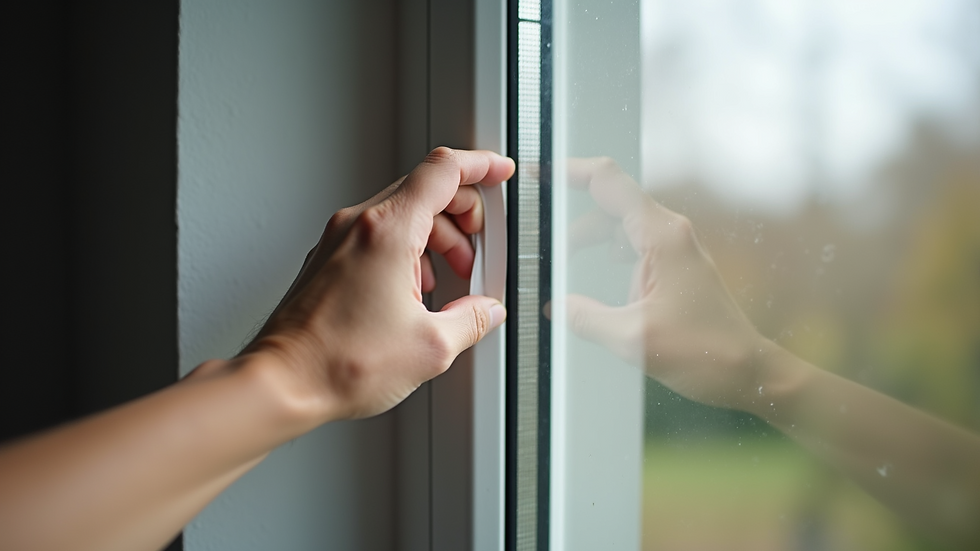Smart Strategies to Lower Your Energy Bills
- hollmas
- Aug 19, 2025
- 4 min read
Energy bills can be a significant part of your monthly expenses. With rising energy prices, finding effective ways to lower energy consumption is more important than ever. Fortunately, there are many practical strategies you can implement to reduce your energy bills without sacrificing comfort. This guide will walk you through smart, actionable tips to help you save money and use energy more efficiently.
Understanding How to Lower Energy Consumption at Home
The first step to lowering your energy bills is understanding where and how energy is used in your home. Heating, cooling, lighting, and appliances are the main contributors to energy consumption. By identifying the biggest energy users, you can target your efforts more effectively.
Heating and Cooling: These systems often account for nearly half of your energy use. Improving insulation, sealing leaks, and upgrading to energy-efficient systems can make a big difference.
Lighting: Switching to LED bulbs and using natural light during the day reduces electricity use.
Appliances: Older appliances tend to consume more energy. Consider replacing them with energy-efficient models.
Simple changes like turning off lights when not in use and unplugging devices can also help. Monitoring your energy use with smart meters or apps can provide insights into your consumption patterns.

Practical Tips to Lower Energy Bills Effectively
Once you know where your energy goes, you can apply specific strategies to lower your bills. Here are some practical tips that can be implemented immediately:
Improve Home Insulation
Proper insulation keeps your home warm in winter and cool in summer. Check your walls, attic, and floors for insulation gaps. Adding insulation can reduce heating and cooling costs significantly.
Seal Windows and Doors
Drafts can cause your heating or cooling system to work harder. Use weatherstripping or caulk to seal leaks around windows and doors.
Use Programmable Thermostats
Programmable thermostats allow you to set temperatures based on your schedule. Lower the temperature when you’re not home or during the night to save energy.
Switch to Energy-Efficient Appliances
Look for appliances with high energy ratings. They use less electricity and water, saving you money over time.
Utilise Solar Power
Installing solar panels can drastically reduce your reliance on grid electricity. Solar energy is renewable and can provide long-term savings.
Maintain Your Heating and Cooling Systems
Regular servicing ensures your systems run efficiently. Replace filters and clean ducts to improve airflow and reduce energy use.
By combining these tips, you can create a comprehensive plan to lower your energy bills.

How to save 90% on your electric bill?
Saving up to 90% on your electric bill may sound ambitious, but it is achievable with the right approach. The key is to drastically reduce your dependence on traditional electricity sources and maximise energy efficiency.
Switch to Solar Energy: Solar panels can cover most or all of your electricity needs. Pairing solar with battery storage allows you to use solar power even when the sun isn’t shining.
Use Energy-Efficient Appliances: Replace all old appliances with the most efficient models available.
Implement Smart Home Technology: Smart plugs, lighting, and thermostats optimise energy use by adapting to your habits.
Reduce Standby Power: Many devices consume power even when turned off. Unplug or use smart power strips to eliminate this waste.
Adopt Behavioural Changes: Simple habits like washing clothes in cold water, air-drying laundry, and cooking efficiently can add up.
Achieving such a high level of savings requires an upfront investment but can pay off significantly over time. For those looking to reduce energy costs, combining these strategies is the most effective path.

Additional Energy-Saving Measures for Every Season
Energy needs change with the seasons, so adjusting your strategies accordingly can help you save year-round.
Winter Tips
Use heavy curtains to keep heat inside.
Reverse ceiling fans to push warm air down.
Dress warmly indoors to reduce heating needs.
Summer Tips
Use fans instead of air conditioning when possible.
Close blinds during the hottest part of the day.
Plant shade trees or install awnings to block direct sunlight.
Year-Round Tips
Regularly clean or replace HVAC filters.
Use energy-efficient water heaters or insulate your existing one.
Consider energy audits to identify hidden inefficiencies.
By tailoring your approach to the season, you can maintain comfort while keeping bills low.
Making Long-Term Investments to Lower Energy Bills
While many energy-saving tips are simple and inexpensive, some require a larger investment but offer substantial long-term savings.
Upgrade to Double or Triple Glazing: Better windows reduce heat loss and noise.
Install Heat Pumps: Heat pumps are highly efficient for heating and cooling.
Smart Home Systems: Automate lighting, heating, and appliances to optimise energy use.
Renewable Energy Systems: Solar panels, wind turbines, or geothermal systems can provide clean energy and reduce reliance on the grid.
These investments not only lower your energy bills but also increase your property’s value and reduce your environmental impact.
By applying these smart strategies, you can take control of your energy consumption and significantly lower your energy bills. Whether through simple behavioural changes or investing in renewable energy, every step counts towards a more efficient and cost-effective home. Start today and enjoy the benefits of reduced energy costs and a greener lifestyle.




Comments